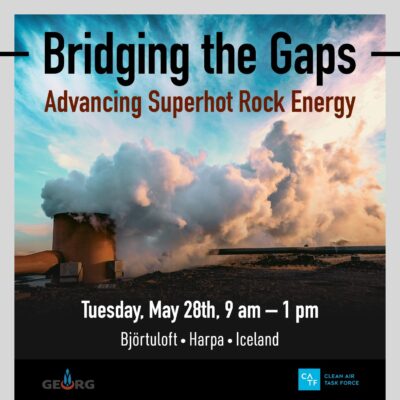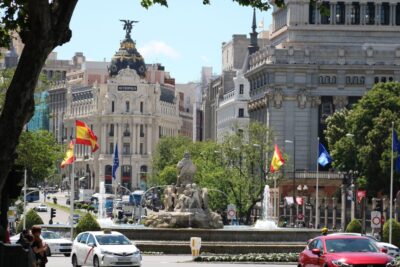Drilling successfully completed for geothermal mine water project, Germany
Drilling of a second well for a project targeting hot water from an abandoned mine for geothermal energy utilization has been successfully completed in Bochum, Germany.
In a release shared today, research organisation Fraunhofer IEG and local utility Stadtwerke Bochum announce having successfully completed the second geothermal well at around 820 meters. The derrick will be dismantled in the coming days. After that, pumping tests are planned in order to be able to better assess the yield of the mine water. The first well at a depth of around 340 meters was already successful in February. The two wells will be part of an energy-saving heating and cooling system of the so-called 5th generation for commercial customers at the site. FUW GmbH, a subsidiary of Stadtwerke, and the Fraunhofer Institute for Energy Infrastructures and Geothermal Energy IEG jointly explored the use of mine water at the MARK 51°7 site and implemented the drilling concept with the drilling company MND Drilling.
“We are very happy about the successful completion of the geothermal drilling. At MARK 51°7, the heat transition becomes reality! Even in an international comparison, we are creating a very innovative and forward-looking energy supply here,” explains Dietmar Spohn, spokesman for the management of Stadtwerke Bochum. “We will now finalize the planning of the system technology for the mine water extraction at the drilling site and for the new energy center east. There, the heating and cooling energy contained in the mine water is to be brought to the temperature level required for supplying customers with heat pumps.”
“Tackling the heat transition is more urgent today than ever before. Geothermal energy combines all the properties that we need for a future-proof location, because it is sustainable, regional, weather-independent and independent of raw material imports such as oil and gas,” emphasizes Prof. Dr. Rolf Bracke, head of the Fraunhofer IEG based in Bochum. “We are pleased to be able to make this supra-regional exemplary contribution to innovation together with the municipal utilities on MARK 51°7 and thus to combine geothermal energy, heating networks, underground storage and large-scale heat pumps in a showcase project for the municipal heating transition in Germany”.
For the heat supply, the mine water from the former Dannenbaum colliery, which is around 30 degrees Celsius, is to be heated to around 45 degrees Celsius using heat pumps and then fed into the network. Mine water is also used to cool the properties under construction. For this purpose, “cold” water at a temperature of around 18 degrees Celsius is pumped from a depth of around 340 metres.
According to forecasts, the natural energy potential of the mine water will cover more than 75 percent of the heating and cooling requirements of the connected customers thanks to this optimal energetic use. The remaining heat requirement is covered by the district heating network of FUW GmbH. Cooling quantities that are additionally required on very hot days are transferred to the cooling network of MARK 51°7 via conventional cooling systems.
The new energy concept makes an important contribution to climate protection. Thanks to the use of mine water as a sustainable and renewable energy source, greenhouse gas emissions (CO2) that are harmful to the climate are reduced by a total of around 3,200 tons per year compared to a conventional heating and cooling supply with natural gas operation and electric compression chillers.
The development of the innovative heating and cooling supply for MARK 51°7 is supported by funds from the EU Interreg program North-West Europe and the BMWi funding program “Heating networks 4.0”. The project partners would like to thank the district government of Arnsberg, as the licensing and supervisory authority responsible for mining law, for their constructive work in the course of this complex drilling project.
MARK 51°7 is one of the largest innovation quarters in Germany. Modern, technology-oriented companies find space on the almost 70-hectare site, as do institutes and research facilities that are looking for close contact with business. 96 percent of the site of the former Opel plant in Bochum, which is being prepared by Bochum Perspektive GmbH, has already been marketed.
source: company release by email


















